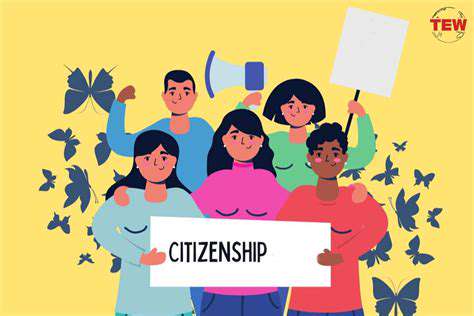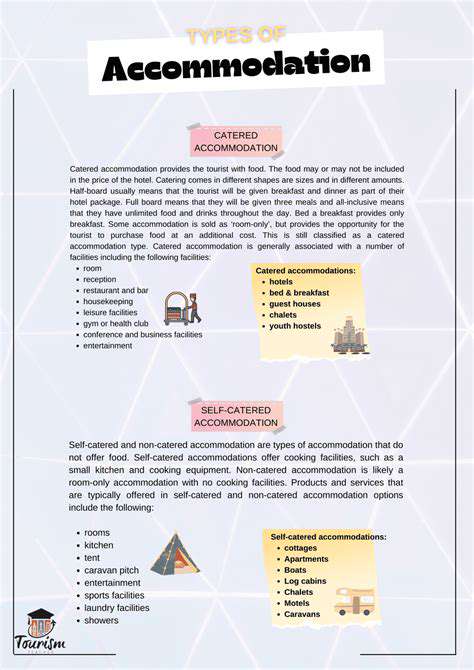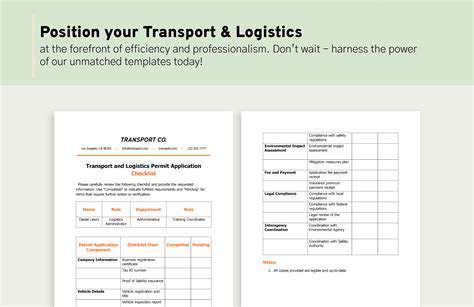Understanding Dual Citizenship and Travel Implications

Residency and Taxation Implications for Dual Citizens in Travel

Residency Status Determination
Determining residency status for tax purposes requires careful analysis of multiple factors. The duration of stay, personal intentions, and property ownership all play pivotal roles. Each jurisdiction interprets residency differently, making professional guidance invaluable for compliance. Some nations use strict day-count methods, while others consider center of vital interests.
For example, the United States applies the Substantial Presence Test, whereas the UK relies on the Statutory Residence Test. Misinterpreting these rules can lead to costly errors in tax filings and potential legal consequences. Many expatriates discover too late that their vacation home unexpectedly established tax residency.
Tax Implications for Residents
Full tax residency typically triggers worldwide income reporting obligations. Unlike tourists or temporary workers, residents must declare foreign investments, rental properties, and offshore accounts. The IRS, for instance, requires Form 8938 for specified foreign assets exceeding certain thresholds.
Some countries implement progressive taxation systems where higher earnings face steeper rates. Residents may qualify for certain exemptions, but these often require meticulous documentation. Failure to report international income streams can result in severe penalties, including criminal charges in extreme cases.
Tax Implications for Non-Residents
Non-resident taxation usually follows simpler rules, focusing only on locally-sourced income. Many countries exempt foreign nationals from capital gains taxes on overseas investments. However, some jurisdictions like Canada impose withholding taxes on non-residents' Canadian-sourced income.
The key advantage lies in avoiding double taxation through foreign tax credits. Smart travelers structure their income streams to minimize taxable events in their visited countries. Strategic timing of asset sales and income recognition can legally optimize tax positions.
Tax Treaties and Agreements
Bilateral tax agreements prevent dual citizens from paying taxes twice on the same income. The US maintains treaties with over 60 countries, each with unique provisions. Treaty benefits often require specific forms like the US W-8BEN for foreign persons.
Some treaties contain saving clauses that preserve a country's right to tax its citizens regardless of residency. Treaty shopping - attempting to exploit favorable agreements - has drawn increased regulatory scrutiny worldwide. Recent OECD initiatives aim to standardize treaty interpretations across borders.
Global Mobility and Taxation
Digital nomad visas and remote work policies have complicated traditional tax frameworks. Countries like Portugal and Estonia now offer special tax regimes for location-independent professionals. The 183-day rule, once standard, now competes with newer concepts like tax nomad status.
Tax authorities increasingly share information through CRS (Common Reporting Standard) agreements. This transparency makes proper reporting essential. Some jurisdictions now tax based on citizenship rather than residency, creating unique challenges for globally mobile individuals.
Tax Deductions and Credits
Dual citizens should explore all available tax relief mechanisms. Foreign housing exclusions, education credits, and retirement savings incentives vary significantly. The US Foreign Earned Income Exclusion allows qualifying citizens to exclude up to $120,000 (2023) of foreign earnings.
Many countries offer tax breaks for specific industries or regions. Proper documentation remains critical - auditors frequently disallow claims lacking sufficient evidence. Some nations permit stacking multiple deductions, while others impose alternative minimum taxes.
International Tax Planning
Effective cross-border tax strategy requires understanding multiple legal systems simultaneously. Timing income recognition to fall in lower-tax years can yield substantial savings. Some families establish trusts or foundations in favorable jurisdictions, though these structures face increasing regulation.
The Panama Papers and similar leaks have intensified scrutiny on offshore arrangements. Modern planning emphasizes compliance over avoidance, using legal methods like tax deferral and income splitting. Many experts recommend annual reviews as laws evolve rapidly in this space.
Cultural Considerations and Travel Etiquette for Dual Citizens
Navigating Cultural Nuances as a Dual Citizen
Dual citizens often serve as cultural bridges during international travel. Subtle differences in business card exchanges (two-handed in Japan), dining customs (no tipping in Japan), or punctuality expectations (flexible in Brazil) require attention. Misreading these cues can damage professional relationships before they begin.
Seasoned travelers recommend the observer-first approach - watching how locals interact before participating. Simple gestures like learning basic greetings in the local language demonstrate respect. In Muslim-majority countries, dressing conservatively and understanding prayer schedules smooths daily interactions.
Etiquette for Visiting Your Home Country
Returning dual citizens often face unexpected cultural re-entry challenges. Family may expect traditional behaviors you've adapted beyond, while locals might perceive you as foreign. Managing these perceptions requires patience and clear communication about your bicultural identity.
In collectivist societies, explaining overseas experiences without appearing boastful becomes an art. Successful returnees often find ways to blend their international perspective with local values. In some cultures, bringing small gifts from abroad helps maintain harmonious relationships.
Passport and Document Considerations
Smart dual travelers always check entry/exit requirements for both nationalities. Some countries like China don't recognize dual citizenship, creating complex entry scenarios. Airlines may refuse boarding if documents don't match reservation details exactly.
Consular registration provides critical emergency support when traveling on that country's passport. Many experts recommend using the same passport for entire trip segments to avoid immigration confusion. Digital backups should include notarized translations where applicable.
Addressing Potential Conflicts of Interest
Dual nationals in sensitive industries (defense, government) face particular scrutiny. Some countries restrict access to certain facilities or information for dual citizens. Transparency about status during security screenings prevents later accusations of concealment.
When conflicts arise, established protocols like recusal or firewall agreements may help. Increasingly, employers require disclosure of all citizenships during hiring processes, especially for positions requiring security clearances.
Embracing the Benefits of Dual Heritage
The most successful dual citizens leverage their unique perspective as a strength. Cultural fluency enables nuanced negotiations and creative problem-solving. Many find their mixed background becomes an asset in international business and diplomacy.
Maintaining connections with both cultures' communities abroad provides ongoing support networks. This bicultural advantage grows increasingly valuable in our interconnected world. Ultimately, dual citizenship offers not just two passports, but twice the cultural toolkit for navigating global environments.











